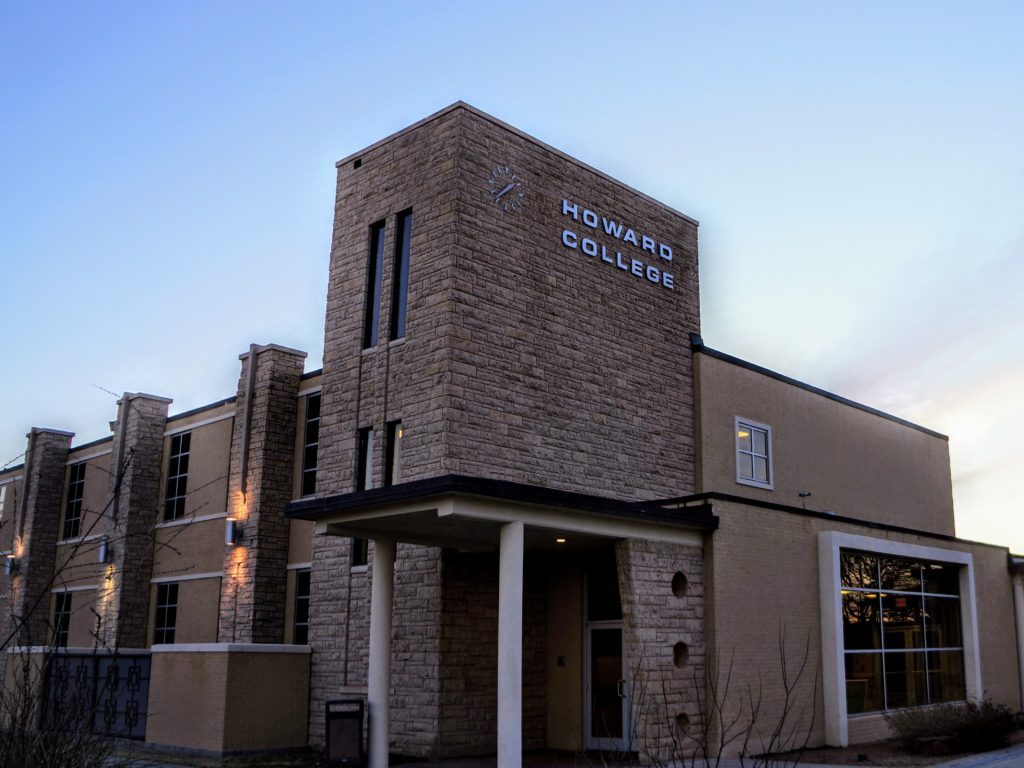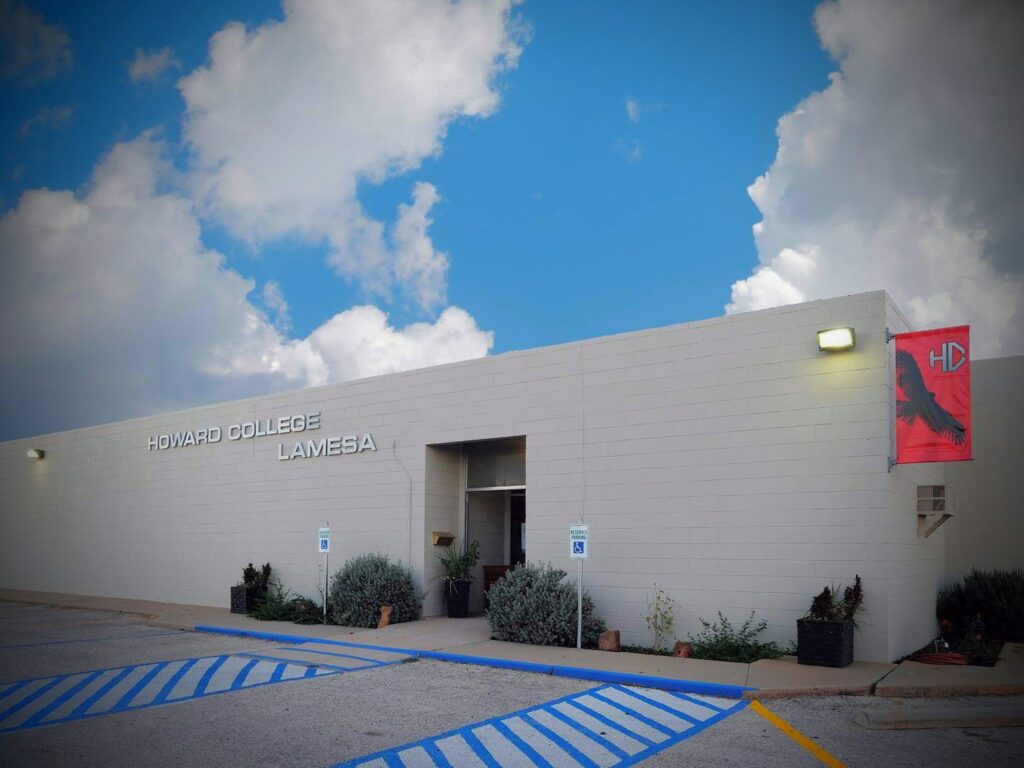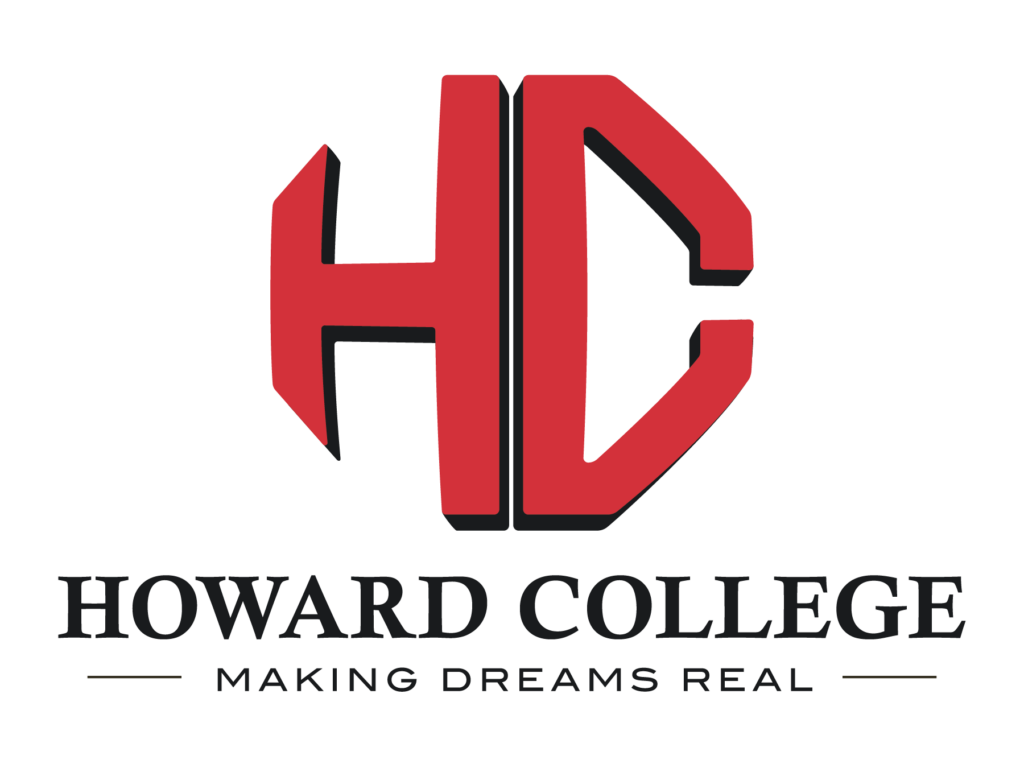Frequently Asked Questions
General Information
Howard College provides financial assistance to help make the benefits of higher education available to qualified students. Federal and state grants, scholarships, federal student loans, and federal and state workstudy programs are administered through the Financial Aid Office. Applications should be made well in advance of the date a student intends to register. Priority deadlines are March 15 for the fall semester and October 1 for the spring semester.
Note to students attending Howard College extended campuses: Please contact the campus representative to assist you in completing your financial aid application information. Documents may be forwarded directly to your campus representative. Priority deadline is March 15 and fall registration deadline is July 1. Information received after the deadlines may not be processed in time for registration.
Basic qualifications for a student to be considered for all types of financial aid are:
- Be in financial need (financial need is the difference between what college costs and what your family can pay according to federal guidelines).
- Make satisfactory academic progress.
- Be a national or permanent resident of the U.S.
- Be pursuing a degree or certificate in an eligible program from Howard College. Only course work REQUIRED by your chosen degree plan can be used to determine financial aid eligibility.
To apply for all types of need based-financial assistance, a student must:
- File the Free Application for Federal Student Aid (FAFSA). This application is available from high school counselors and principals, from the Financial Aid Office, or through FAFSA on the Internet (https://studentaid.gov/) Title IV Code Number for Howard College is 003574.
- Contact the Financial Aid Office to insure that all copies of the Student Aid Report/I.S.I.R. for the Pell Grant are on file in the Financial Aid Office regardless of grant eligibility.
Note: Students selected for verification by the Department of Education will also be required to submit:
- a signed copy of the family’s (student and spouse for independent students; student/ spouse and parents if dependent) most recent federal income tax return (1040, 1040A, or 1040EZ) to the Financial Aid Office (all schedules and W2 information must be included.); and
- an Institutional Verification Form (IVF) which may be obtained from the Financial Aid Office.
Ability To Benefit
Students who do not have a high school diploma or its recognized equivalent must pass a Department of Education approved exam administered by the college.
- Apply for your Free Application for Federal Student Aid (FAFSA) Pin Number.
- Complete the FAFSA online.
- Include Howard College’s Federal School Code on your FAFSA: 003574
- Check your Student Aid Report for accuracy.
- Check with the Financial Aid Office for any additional required documentation
Grants
Federal Pell Grant
The purpose of the Federal Pell Grant Program is to provide eligible students with a “floor” of financial aid to help defray some of the costs of post-secondary education. Student eligibility is based on financial need determined on the basis of a formula, developed by the Department of Education and reviewed by Congress annually, which is applied uniformly to all applicants. Howard College participates in the Federal Pell Electronic Data Exchange (EDE) system. This allows the college to correct information on the Pell Grant Student Aid Report electronically for those students who list Howard College as their college choice.
Federal Supplemental Educational Opportunity Grant (SEOG)
A limited number of Supplementary Grants are available to students with exceptional need each year. Student eligibility and amount of grant is determined by the income level of the student and his parents.
State Student Incentive Grant Program (SSIG) & Texas Public Educational Grant (TPEG)
These grant funds are available from a combination of Federal, State, and College sources to assist deserving students who have additional financial need. These grant funds are limited and generally range from $200 to $600 per academic year.
TEXAS (Toward Excellence, Access, & Success) Grant Programs
The purpose of these programs is to provide a grant of money to enable well-prepared eligible students to attend public and private nonprofit institutions of higher education in Texas. The programs are administered through the Texas Higher Education Coordinating Board. Awards are made through the financial aid office; all students who have completed a financial aid file will be reviewed for eligibility. Returning or transfer Texas Grant recipients must complete a financial aid file to continue to receive the award. The Texas Grant program offers three opportunities for a student to qualify for the program. All three programs require that a student be a Texas resident, has financial need, has applied for any available financial aid or assistance, maintains satisfactory academic progress, and has not been convicted of a felony or crime involving a controlled substance.
For students graduating with a recommended or advanced high school diploma: To be eligible for the Texas Grant program, a student must have graduated from a public or accredited private high school in Texas, no earlier than Fall 1998 (note: must enter program within 16 months of graduation from high school), completed the recommended or advanced high school curriculum or its equivalent, and enrolls at least 3/4 time in an undergraduate degree or certificate program. Satisfactory academic progress for a student’s first year on this program is determined by the school’s satisfactory academic progress standards; in subsequent years, a student must have a minimum of a 2.5 cumulative grade point average and have completed 75 percent of the hours attempted in the prior academic year. A student who maintains eligibility will continue to receive the award up to 150 credit hours, six years, or upon completion of a bachelor’s degree, whichever comes first.
- For students receiving an Associate’s Degree in May 2001 or later: A student who receives an Associate’s Degree in May 2001 or later and continues in college for a higher degree can qualify for the Texas Grant program. A student in this program must enroll at least 3/4 time in a higher level undergraduate degree program and must enroll within 12 months of completion of the associate degree. The academic standards are completion of at least 75 percent of the hours taken in the prior year, and a cumulative grade point average of at least 2.5. A student who maintains eligibility will continue to receive the award up to 90 credit hours, four years, or upon completion of a bachelor’s degree, whichever comes first.
- Texas Grant II Program: This program is for students that do not qualify under the Texas Grant program and are attending a public community college, technical college, or public Texas institution. A student must be enrolled at least half-time in the first 30 hours (or their equivalent) in an associate’s degree or certificate program at a public two-year institution of higher education. The family’s contribution (EFC) must be no more than $2,000. The academic standards are completion of at least 75 percent of the hours taken in the prior year and a cumulative grade point average of at least 2.5. A student who maintains eligibility will continue to receive the award up to 75 credit hours, four years, or upon completion of an associate’s degree, whichever comes first.
Academic Competitiveness Grant (ACG)
The Academic Competitiveness Grant (ACG) is for first-year undergraduate students (eligible to receive up to $750) and second-year undergraduate students (eligible to receive up to $1,300). The ACG eligibility criteria are listed below:
To be eligible for an ACG, you must:
- Be a U.S. citizen
- Be Federal Pell Grant eligible
- Be enrolled full-time in a degree program
- Be enrolled in the first or second academic year of your program of study at a two-year or four-year degree-granting institution
- Have completed a rigorous secondary school program of study (after January 1, 2006, if a first-year student, and after January 1, 2005, if a second year student)
- Not have been previously enrolled in an undergraduate program (if you are a first-year student)
- Have at least a cumulative 3.0 grade point average on a 4.0 scale for the first academic year (if you are a second-year student)
Loans
The William D. Ford Direct Loan Program
The following loan programs provide assistance to students who have additional financial need to cover the cost of attending college.
To apply for student loans, a student must:
- File the Free Application for Federal Student Aid (FAFSA). This application is available from high school counselors and principals, from the Financial Aid Office, or through FAFSA on the Internet (https://studentaid.gov/). School Code Number for Howard College is 003574.
- Enrolled in at least half-time (6 hours) in an eligible degree or certificate program at Howard College.
- Contact the Financial Aid Office to insure that all copies of the Student Aid Report/I.S.I.R. for the Pell Grant are on file in the Financial Aid Office regardless of grant eligibility.
Direct – Subsidized & Unsubsidized Loans
These are low-interest loans available through the U.S. Department of Education. Students who demonstrate need may borrow through the subsidized loan program, i.e., the Federal Government will pay the interest on the student’s loan while he or she is enrolled at least halftime. Those who do not qualify for the subsidized loan (in whole or part) may be considered for the unsubsidized loan; however, the student must pay interest that accrues on the loan during the entire period of the loan.
Direct
The Parent Loan for Undergraduate Students (PLUS) is available for parents of dependent undergraduate students.
Borrowing Limits
There are limits on how much a student can borrow. The annual borrowing limits for a Subsidized Stafford Loan are $4,500 for freshman students, $3,500 for sophomore students. Independent students may be eligible to borrow up to $4,000 through the Unsubsidized Stafford Loan Program. The Howard College aggregate limit is $23,000. This includes loans received at other institutions. Howard College will not certify a loan for a student or parent if a history of delinquent or defaulted loans exists.
Yes, if you drop a class or classes prior to the end of the sixth week of the semester, your financial aid will be reduced, and you will have to repay any excess funds you received.
In order to maintain satisfactory academic progress for financial aid purposes, you must complete at least 75% of the classes for which you register. Each time you drop a class (after the semester begins) your completion percentage drops.
SATISFACTORY ACADEMIC PROGRESS STANDARDS
Students who receive federal financial assistance must maintain satisfactory academic progress (SAP) as described below.
- All students attending Howard College and receiving federal or state financial aid funds will have a time frame in which to complete their degree requirements. Students are expected to complete their degree or educational objectives within a reasonable number of semesters. This time frame is the equivalent of 150 percent of the published length of the individual program. (For example, if a certificate program requires 30 hours, a student will be paid up to 45 hours to complete the program or if an associate degree program requires 64 hours then a percent will be paid up to 96 hours to complete their degree.) This time frame will include any semester that the student was enrolled even if the student did not receive financial aid and/or transfer work that is applied to the student program of study and posted to their transcript. Periods of enrollment may be converted to semesters for non-consecutive enrollment. (Students that have earned 30 credits or more may be asked to keep an updated degree plan at the Financial Aid Office.) Additionally, this degree plan should be reviewed with the academic advisor and the student each semester to ensure that the student is remaining on track to completing the approved degree plan. Students taking courses outside of their degree plan may exhaust financial aid eligibility prior to completion of degree.
- Students who have previously attended Howard College are making Satisfactory Academic Progress if the following conditions are met. If any or all are not met, the student will be on financial aid probation.
- Full-time Students Semester/Credit Hours: A full-time student will be expected to complete one-sixth (10 hours) of the work required for his/her degree each semester. Grades of “I”, “W”, and “F” will not satisfy the course completion requirements.
Clock Hour Programs: To remain eligible for financial assistance, students pursuing certification in clock hour programs (i.e. Cosmetology) will be allowed a time frame to complete the program that is the equivalent of 150% of the published length of the program. - Part-time Students Semester/Credit Hours: Part-time students will be expected to complete nine hours for three-quarter time, six hours for half-time attendance, and all courses originally enrolled in for less than half-time each semester. Grades of “I”, “W”, “F” will not satisfy the course completion requirements.
Clock Hour Programs: Students will be expected to complete a minimum of 50% of the clock hours required to complete the program by the end of the mid-point of the 150% time frame. - All students will be expected to acquire a 2.0 grade point average on all work completed each semester to remain in good academic standing.
- A course previously completed with a grade of “D” or above cannot be used when determining financial aid eligibility, enrollment status, or satisfactory progress. EXCEPTION: An exception can only be made if the repeat is required by the program of study as documented by the faculty advisor/counselor. Only one repeat is allowed under these circumstances.
- Students enrolled in the same course three or more times will not receive financial aid funding for that specific course.
- Students who have earned 30 credits or more may be asked to submit an updated degree plan to the financial aid office.
Note: Students who are required to take preparatory course work will be limited to 30 semester hours of financial aid eligibility for these classes.
- Full-time Students Semester/Credit Hours: A full-time student will be expected to complete one-sixth (10 hours) of the work required for his/her degree each semester. Grades of “I”, “W”, and “F” will not satisfy the course completion requirements.
Students Not Meeting Conditions Listed Above May Be Placed On Financial Aid Probation.
- Students who do not meet the above requirements during the next semester of attendance following their financial aid probation will be placed on financial aid suspension. This suspension will last during the next semester of enrollment and no federal or state awards will be made. After the student has achieved satisfactory academic progress, the student will be placed on financial aid probation for the semester immediately following suspension.
- There may be occasions in which an exception to the definition of Satisfactory Academic Progress should be made. The Director of Financial Aid will review all pertinent information regarding the situation and may grant an exception to the standards. If a student feels that an exception should be made, he/she should submit a written explanation of the circumstances surrounding the semester in question to the Director of Financial Aid for consideration. If the student is dissatisfied with the decision of the Financial Aid Director, the case may be referred to the Financial Aid Committee for a decision. Final decision will then be left to the Financial Aid Committee.
- Return of Title IV Funds – Under federal law students attending Howard College / SWCID who receive Title IV aid (Pell, SEOG, Federal Student Loans) and completely withdraw before the sixty percent (in time) in the period of enrollment will be required to return any unearned funds. Unearned Title IV funds are the percentage of term not attended times the Title IV aid. Students who cease attendance, do not withdraw, and receive all falling grades (F) for a semester will be considered unofficially withdrawn these students will be subject to a review of their attendance records. If it is determined that a student ceased attendance before the 60% point in the semester, the student will be required to return those unearned funds. In some instances, the student may owe both the federal government and the college. Students owing either the government or the college will be ineligible for any further aid until funds are repaid.
You must submit separate application to the financial aid office. Eligibility is based on number of hours enrolled in fall and spring semester. Loans will not be available for summer aid.
Under federal law students attending Howard College / SWCID who receive Title IV aid (Pell, SEOG, Federal Student Loans) and completely withdraw before the sixty percent (in time) in the period of enrollment will be required to return any unearned funds. Unearned Title IV funds are the percentage of term not attended times the Title IV aid. Students who cease attendance, do not withdraw, and receive all falling grades (F) for a semester will be considered unofficially withdrawn; these students will be subject to a review of their attendance records. If it is determined that a student ceased attendance before the 60% point in the semester, the student will be required to return those unearned funds. In some instances, the student may owe both the federal government and the college. Students owing either the government or the college will be ineligible for any further aid until funds are repaid.
Students who cease attendance, do not withdraw, and receive all falling grades (F) for a semester will be considered unofficially withdrawn; these students will be subject to a review of their attendance records. If it is determined that a student ceased attendance before the 60% point in the semester, the student will be required to return those unearned funds. In some instances, the student may owe both the federal government and the college. Students owing either the government or the college will be ineligible for any further aid until funds are repaid.




